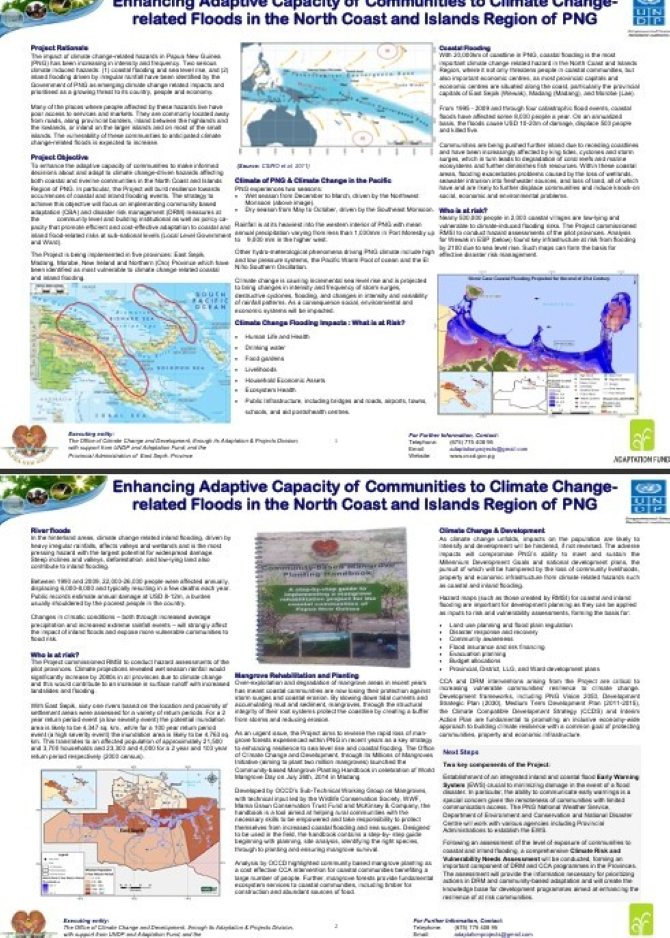Enhancing Adaptive Capacity of Communities to Climate Change-related Floods in the North Coast and Islands Region of PNG

The impact of climate change-related hazards in Papua New Guinea
(PNG) has been increasing in intensity and frequency. Two serious
climate induced hazards: (1) coastal flooding and sea level rise, and (2)
inland flooding driven by irregular rainfall have been identified by the
Government of PNG as emerging climate change related impacts and
prioritised as a growing threat to its country, people and economy.
Many of the places where people affected by these hazards live have
poor access to services and markets. They are commonly located away
from roads, along provincial borders, inland between the highlands and
the lowlands, or inland on the larger islands and on most of the small
islands. The vulnerability of these communities to anticipated climate
change-related floods is expected to increase.
